
Two sets of profound composure and restraint, captured at a concert in Munich in May 2019 by Berlin improvising instrumentalists -- Werner Dafeldecker (double bass) and Lucio Capece (bass clarinet, slide saxophone, feedback and room amplification) -- invoking moods of Polwechsel through focused structures of intense precision of dense interaction.
In Stock
Quantity in Basket: None
Log In to use our Wish List
Shipping Weight: 3.00 units
EU & UK Customers:
Discogs.com can handle your VAT payments
So please order through Discogs
Sample The Album:
Werner Dafeldecker-double bass
Lucio Capece-bass clarinet, slide saxophone, mini speakers with feedback and room amplification
Click an artist name above to see in-stock items for that artist.
Label: Another Timbre
Catalog ID: at162
Squidco Product Code: 29591
Format: CD
Condition: New
Released: 2020
Country: UK
Packaging: Cardboard Gatefold
Recorded in Munich, Germany, on May 31st, 2019, by Hannes Schneider.
"This is our first purely improvised release for quite some time. Two wonderfully controlled sets from a concert in Munich in May 2019 by two of Berlin's most respected instrumentalists - Werner Dafeldecker (double bass) and Lucio Capece (bass clarinet, slide saxophone, room acoustics). "Wonderfully controlled soundwork by two masters of experimental music".-Marcus O'Reilly
Another Timbre Interview with Werner Dafeldecker
"Tell us a bit about the two pieces on 'Iteration' - how much was the music pre-planned and/or improvised?
The two pieces were recorded last year during our live performance at the 'Offene Ohren' concert series in Munich. On the disc are two unedited improvised sets. Lucio and I have known each other for many years and play together periodically. So the music was maybe 'pre-planned' to some extent, but only in the sense that we share similar interests and a similar history when it comes to content and methodology in improvised music.
Could you say a bit more about that shared history in relation to improvised music? Lucio was very involved in the 'reductionist' turn in improvisation from the mi-90's. You were in Polwechsel at around the same time, so did you have a similar or different trajectory, and did or do you see your music as 'reductionist'?
When I refer to shared history I mean that both of us have been interested in improvisational concepts away from emotional expression and/or jazz-routed music. I think we also share a non-dogmatic approach when it comes to the term "reductionist" music. In my opinion the term is an imposed category which tries to describe a social cultural shift of the values in that specific field of music at that time. Density or emotionality were often replaced by a certain degree of clarity of structure and tonal accuracy. I clearly have been involved in that relocation which, like every change, leaves its mark.
Free improvisation had first emerged in the late 60's, and for me personally the cultural shift you refer to in the late 90's reinvigorated the music in a very positive way. Now, 25 years on from that, how do you see improvised music developing?
In line with the social developments of the past decades, and their distortions, I cannot see clear lines in today's improvised music. The rapid economic and media developments led to extreme individualisation, and this also affected the conditions and working methods of the improvising musicians and their surroundings. I ask myself which line of attack musicians will develop to reflect today's social upheavals, and what function improvised music will have in the near future....
Going back a bit, how did you start out in music, and what brought you to experimental music?
I've been involved in music for around 35 years now. But I had no background in music until the age of 13 when I started to play electric bass. In the mid-80's I turned to the double bass and enthusiastically worked with the Austrian Ensemble Ton.Art. Our music was a hybrid of the second Viennese school, free jazz and third stream music. (Mingus, Dolphy, Webern, Kogelmann)
At that time I locked myself into the rehearsal room and discovered the beauty and fragility of my instrument. An ear-opening sensation in that period, and one which gave me confidence to continue, was a Bill Dixon workshop held at the 'Wiener Musikgalerie' in 1985.
Was that same hybrid grounding (second Viennese school | free jazz | third stream) also underlying the releases on the Durian CD label which you co-ran for some years, or had the focus shifted by then?
No Durian came after that period. Uli Fussenegger and I founded the label with our acoustic double bass duet titled "Bogengänge". The further idea was to create a platform which enabled us to release new music, electroacoustic and improvisational concepts all on one label. At that time such a thing did not exist in Austria and was in high demand by the artists. The focus had shifted by then because there has been a much more liberal exchange between the genres. Parallel to that our work with Polwechsel has taken shape.
A lot of the music you have made involves either improvisation or bringing a good deal of creativity to interpretation. Have you also worked as a composer, or does this not appeal to you so much?
In my ideal case there is a symbiosis between composer and interpreter. If ideas are coming up, I try to develop adequate methods to implement them.
This can be a verbal agreements, a notated score or computer assembled structures and everything in between. Since my work in general is very sound-based, it is more fruitful if I work closely with the musicians during the development process.
Thecontemporary music scene in Vienna always seems busy and creative. When did you move from Austria to Berlin, and why?
I fell in love with my future partner and moved to Berlin in 2006. That was not a big leap for me, because there was already a lively musical exchange between the two cities.
Berlin is home to a huge number of talented and committed musicians, which I imagine brings some problems as well as many advantages. How do you see Berlin's experimental music scene now, and what problems does it face in the future?
I would say the benefits in Berlin - social life, Internationality, open-mindedness are greater. Due to changing structures and a new generation of improvising musicians it has become more difficult to focus on "the scene", which in my view is not a disadvantage. In any case, I do not plan to leave the city in the foreseeable future."
Artist Biographies
• Show Bio for Werner Dafeldecker "Werner Dafeldecker was born in Vienna in 1964 and studied the double bass which he plays with passion. As a musician, composer and sound artist he takes advantage of the manifold possibilities offered by electro-acoustics. His musical projects are often inspired and deduced by outside influences such as architecture, science, photography and film - partially resulting in the creation of graphical scores for various ensembles and instrumental performers. Werner also focuses on site specific projects, field recording and opposing natural and environmental sounds with synthetic variants. He has built up an extensive sound archive and created several electroacoustic pieces for radio and film. Around ninety sound-recordings are documenting his artistic framework. He held lectures and workshops presenting his work i.a. at University Bellas Artes-Madrid, Hochschule für Gestaltung-Karlsruhe, RMIT University-Melbourne and Edith Cowan University-Perth. Commissions / Exhibitions / Performances: Kammermusiktage Witten; Contemporary Arts Museum, Houston; Berliner Festspiele Maerz Musik Festival; Sound field Festival, Chicago; Festival Wien Modern; Festival Hörgänge, Wien; Centre Pompidou, Paris; Steirischer Herbst, Graz; What is Music Festival, Australia; International Music Festival, Vancouver; LMC Festival, London; Dundee Media Festival; Ultraschall Festival, Berlin; SWR; ORF; Salzburger Festspiele; Liquid Architecture Festival, Australia; Darmstädter Ferienkurse; Serralves Festival, Porto, ZKM, Karlsruhe; Museum of Contemprary Art, Zagreb; Museo Reina Sofia, Madrid; Gronland Kammermusikk Festival, Oslo; Festival Mikromusik, Berlin; Borealis Festival, Oslo; Akademie der Künste, Berlin; Klangspuren Schwaz, Tirol; Transmediale Festival, Berlin" ^ Hide Bio for Werner Dafeldecker • Show Bio for Lucio Capece "Lucio Capece: Argentinian musician based in Europe since 2002, specifically in Berlin since 2004. Capece followed education as a classical guitarist and jazz saxophonist finishing studies at the Ginastera Conservatory in Morón, Buenos Aires (9 years career), and took self supported private lessons in Bass Clarinet (Martin Moore) , Saxophone and Jazz improvisation (Carlos Lastra, Gustavo Alsberg, Quique Sinesi) in Buenos Aires, Lyon (France, with Louis Sclavis), New York (meetings with Marilyn Crispell, Gerry Hemingway, Tim Berne, Hank Roberts, Jim Black) and Chicago. (Lessons and concerts with Gene Coleman) In Argentina he was part as a performer and composer of the ensemble Avion Negro and the trio Casual, working in the area of Contemporary jazz. Since the late 90´s he offered music in the context of Electro Acoustic Improvisation, focused in quietness, attentive listening and granular material. Since 2011 he dedicates to offer works focused in the Perception experience, that he performs mainly in solo and in the context of occasional collaborations based in the same interest. He composes his own pieces that may include improvisation and different ways of writing. He uses tools like Flying Speakers hanging from Helium Balloons, Speakers as Pendulums, Analog synthesiser, Sine Waves and Noise Generators, Drum Machines, Ultra- Violet Lights, Sensors as much as the instruments that he has played for 25 years: Bass Clarinet and Soprano Saxophone, adding recently a 100 years old Slide Saxophone. He has also written compositions for Ensembles working the same aspects in the context of traditional Instrumentations. He has performed his own sound interventions in spaces like The Cathedral of Bern (Zoom In Festival, 2012) The Mambo Museum in Bologna (Live Arts week 2012),the German Pavilion built by Mies Van der Rohe in Barcelona, the Halle des Expositions built by Alexandre Gustave Eiffel in Evreux, France ( L ´Atelier series) the Bauhaus Archive in Berlin, and the Colón Theatre in Buenos Aires where he offered an interactive installation for children. Beyond instrumentation and tools, the main intention is to focus in the physical-social-spatial human experience. Capece has played and released CD´s and LP´s with musicians like Radu Malfatti, Keith Rowe, Mika Vainio, Vladislav Delay, David Sylvian,Kevin Drumm, Lee Patterson, Christian Kesten, Sergio Merce, Toshimaru Nakamura, Robin Hayward, Taku Sugimoto, Ilpo Vaisanen, Julia Eckhardt, Tisha Mukarji, Annette Krebs, Andrea Neumann, Axel Dörner, Angharad Davies, Rhodri Davies, Burkhard Beins, among others. He has released Cd´s and LP´s in labels like B-Boim, Editions Mego ( Austria), Another Timbre, Hideous Replica, Entr´acte, Leaf ( UK), PAN (Germany), Potlatch, Drone Sweet Drone (France), Formed ( USA), Mikroton , Intonema (Russia), Organized Music from Thessaloniki ( Greece), No Seso (Argentina), etc His collaboration record "Trahnie" ( Editions Mego) with Mika Vainio was considered among the best 10 records of the year in the category "Outer Limits" by the magazine The Wire, in 2009. He has worked with dancers and choreographers David Lakein (Amsterdam), Ayara Hernandez (Berlin) and doing interventions in public spaces in Buenos Aires together with the choreographer Andrea Servera (Ex member of the legendary collective "El Descueve") As a performer he has worked with Pauline Oliveros, Peter Ablinger, Antoine Beuger, Michael Pisaro, Alex Arteaga, Christian Wolff, Phill Niblock as part of the Ensembles Q-O2 from Belgium, and Konzert Minimal from Berlin, together with the musicians Johnny Chang, Koen Nutters and Hannes Lingens. He organises since 5 years the one day Festival "Perceptive Turns" in Berlin." ^ Hide Bio for Lucio Capece
7/1/2025
Have a better biography or biography source? Please Contact Us so that we can update this biography.
7/1/2025
Have a better biography or biography source? Please Contact Us so that we can update this biography.
Track Listing:
1. Iteration Part 1 23:10
2. Iteration Part 2 21:58
Improvised Music
Free Improvisation
Electro-Acoustic
Electro-Acoustic Improv
lowercase, reductionist, micro-improv, sound improv, onkyo sound
European Improvisation, Composition and Experimental Forms
Stringed Instruments
Recordings by or featuring Reed & Wind Players
Duo Recordings
Search for other titles on the label:
Another Timbre.


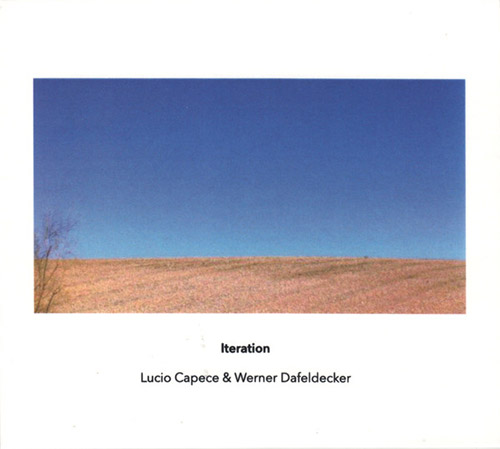

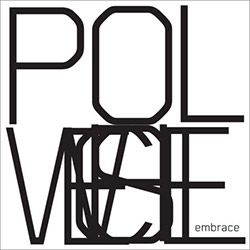
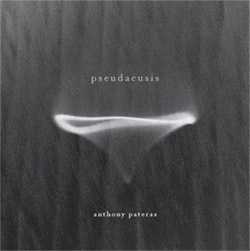
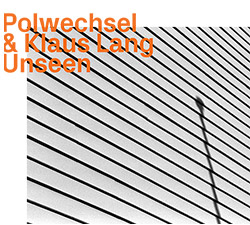
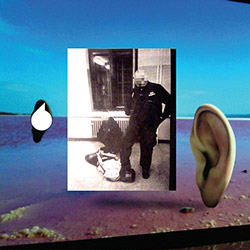


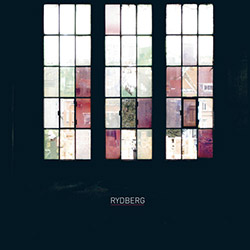
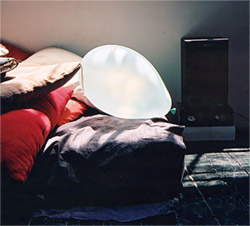
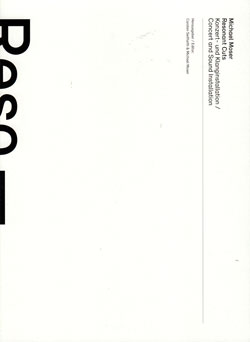
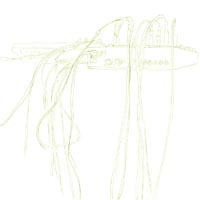

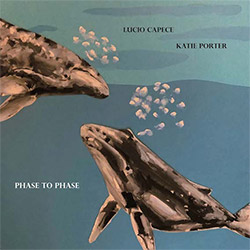





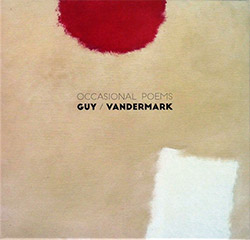
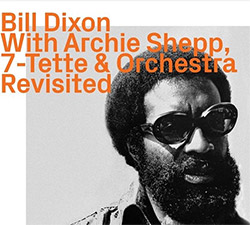
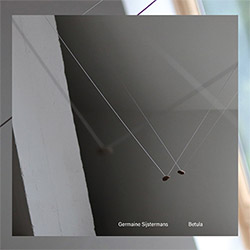
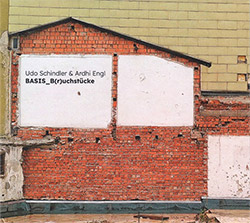
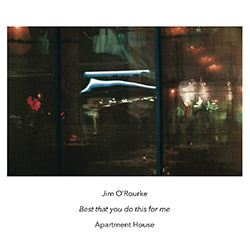













![Deupree, Jerome / Sylvie Courvoisier / Lester St. Louis / Joe Morris: Canyon [2 CDs]](https://www.teuthida.com/productImages/misc4/36404.jpg)


![Eternities: Rides Again [CASSETTE]](https://www.teuthida.com/productImages/misc4/36247.jpg)

![Lopez, Francisco: Untitled (2021-2022) [2 CDs]](https://www.teuthida.com/productImages/misc4/36438.jpg)




![Eventless Plot | Haarvol: The Subliminal Paths [CASSETTE + DOWNLOAD]](https://www.teuthida.com/productImages/misc4/36232.jpg)












![Eventless Plot | Francesco Covarino: Methexis [CASSETTE + DOWNLOAD]](https://www.teuthida.com/productImages/misc4/36231.jpg)



![Das B (Mazen Kerbaj / Mike Majkowski / Magda Mayas / Tony Buck): Love [VINYL]](https://www.teuthida.com/productImages/misc4/36329.jpg)



![Hemphill Stringtet, The: Plays the Music of Julius Hemphill [VINYL]](https://www.teuthida.com/productImages/misc4/36409.jpg)



![Halvorson, Mary Septet: Illusionary Sea [2 LPS]](https://www.teuthida.com/productImages/misc4/17952.jpg)






![Money : Money 2 [2 CDs]](https://www.teuthida.com/productImages/misc4/35894.jpg)




![Klinga, Erik: Elusive Shimmer [VINYL]](https://www.teuthida.com/productImages/misc4/36258.jpg)
![CHANGES TO blind (Phil Zampino): Volume 9 - I Wave on a Fine Vile Mist [CD + DOWNLOAD]](https://www.teuthida.com/productImages/misc4/36061.jpg)

![Wallmart / Rubbish: Asset Protection [split CD]](https://www.teuthida.com/productImages/misc4/35900.jpg)


![+Dog+: The Family Music Book Vol. 5 [2 CDs]](https://www.teuthida.com/productImages/misc4/35897.jpg)
![Kuvveti, Deli : Kuslar Soyledi [CASSETTE w/ DOWNLOAD]](https://www.teuthida.com/productImages/misc4/36107.jpg)

![Nakayama, Tetsuya: Edo Wan [CASSETTE w/ DOWNLOAD]](https://www.teuthida.com/productImages/misc4/36105.jpg)




![Yiyuan, Liang / Li Daiguo: Sonic Talismans [VINYL]](https://www.teuthida.com/productImages/misc4/35957.jpg)
![Brown, Dan / Dan Reynolds: Live At The Grange Hall [unauthorized][CASSETTE]](https://www.teuthida.com/productImages/misc4/36245.jpg)








![Palestine, Charlemagne / Seppe Gebruers: Beyondddddd The Notessssss [VINYL]](https://www.teuthida.com/productImages/misc4/36206.jpg)
![Palestine, Charlemagne / Seppe Gebruers: Beyondddddd The Notessssss [NEON GREEN VINYL]](https://www.teuthida.com/productImages/misc4/36207.jpg)

![Laubrock, Ingrid: Purposing The Air [2 CDs]](https://www.teuthida.com/productImages/misc4/35639.jpg)

![Yoko, Ono / The Great Learning Orchestra: Selected Recordings From Grapefruit [2 CDs]](https://www.teuthida.com/productImages/misc4/35841.jpg)









![Zorn, John / JACK Quartet: The Complete String Quartets [2 CDs]](https://www.teuthida.com/productImages/misc4/35609.jpg)

![Lonsdale, Eden: Dawnings [2 CDs]](https://www.teuthida.com/productImages/misc4/35480.jpg)



![Sorry For Laughing (G. Whitlow / M. Bates / Dave-Id / E. Ka-Spel): Rain Flowers [2 CDS]](https://www.teuthida.com/productImages/misc4/35985.jpg)

![Rolando, Tommaso / Andy Moor : Biscotti [CASSETTE w/ DOWNLOADS]](https://www.teuthida.com/productImages/misc4/36106.jpg)


![Electric Bird Noise / Derek Roddy: 8-10-22 [CD EP]](https://www.teuthida.com/productImages/misc4/35970.jpg)








![Elephant9 : Mythical River [VINYL]](https://www.teuthida.com/productImages/misc4/34624.jpg)



![Elephant9 with Terje Rypdal: Catching Fire [VINYL 2 LPs]](https://www.teuthida.com/productImages/misc4/35355.jpg)
![Deerlady (Obomsawin, Mali / Magdalena Abrego): Greatest Hits [VINYL]](https://www.teuthida.com/productImages/misc4/34876.jpg)







![Surplus 1980: Illusion of Consistency [CD]](https://www.teuthida.com/productImages/misc4/35069.jpg)
![Staiano, Moe: Away Towards the Light [VINYL + DOWNLOAD]](https://www.teuthida.com/productImages/misc4/35037.jpg)
![Coley, Byron: Dating Tips for Touring Bands [VINYL]](https://www.teuthida.com/productImages/misc4/17906.jpg)

![Lost Kisses: My Life is Sad & Funny [DVD]](https://www.teuthida.com/productImages/misc4/lostKissesDVD.jpg)